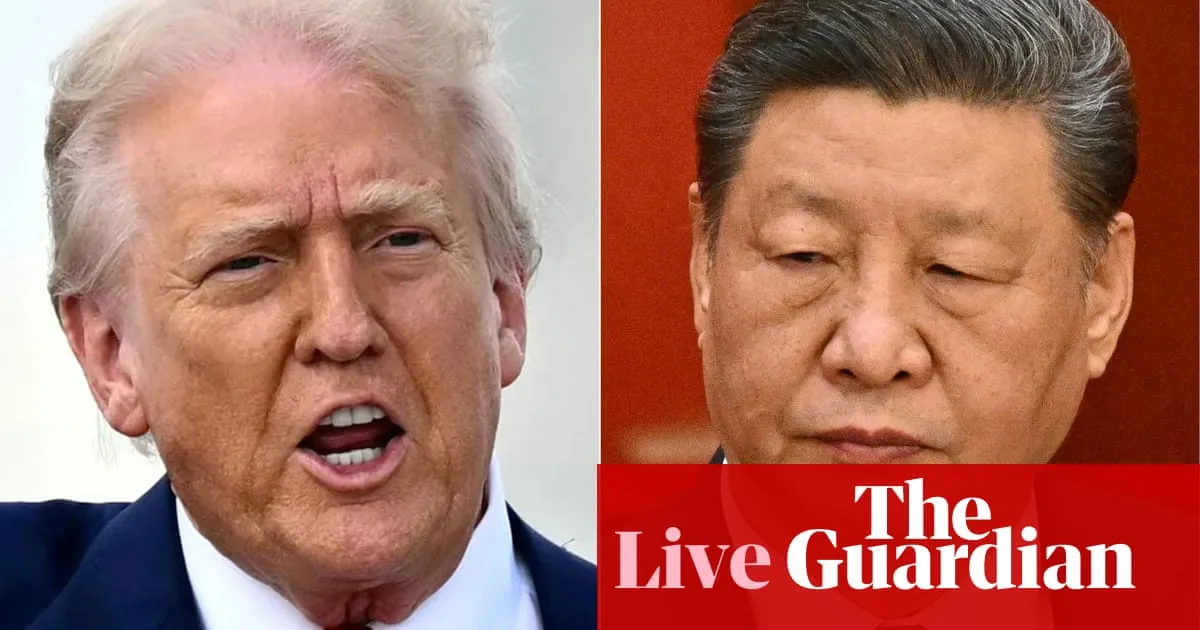
In a strategic move, Republicans are quietly advocating for a procedural rule that would significantly restrict the ability of the US Congress to challenge President Donald Trump’s tumultuous tariff policies. On Wednesday, the House of Representatives’ rules committee approved a measure that prohibits the House from voting on legislation aimed at overturning the president’s recently enacted taxes on foreign imports. This maneuver is embedded within procedural legislation that is designed to establish debate on a separate matter: the crucial budget resolution that aligns with Trump’s agenda.
If this rule is adopted, it would effectively stall Democratic efforts to force a floor vote on a resolution disapproving of the national emergency declared by Trump last week to justify these tariffs. This tactic mirrors previous strategies employed to shield Trump’s earlier tariffs from Congressional scrutiny.
In a surprising shift, Trump announced on Wednesday a 90-day pause on tariffs for most countries, although he has raised tariffs on China to a staggering 125%. This pause has been welcomed in Asia, particularly by countries like South Korea and Taiwan, which are seeking to utilize this reprieve for negotiations aimed at reducing tariffs. South Korea’s top trade envoy, Cheong In-kyo, expressed optimism that the additional time would facilitate discussions to lower tariffs imposed on the nation. Meanwhile, Taiwan's foreign minister, Lin Chia-lung, affirmed the island's commitment to increasing trade with the US and reducing its trade surplus, highlighting the potential for more detailed economic cooperation during the extended pause.
As markets around the world react positively to Trump’s tariff reprieve, stocks in Asia experienced significant gains. In Hong Kong, the Hang Seng Index surged by 2.69%, while the Shanghai Composite Index increased by 1.29%. The positive sentiment extended to Taiwan, where stocks rose by an impressive 9.2%, reflecting a broader rebound in regional markets. This uplift in Asian stocks is a response to Trump’s decision to temporarily suspend tariffs, with many investors optimistic about the prospect of ongoing trade negotiations.
In response to the rising tensions from US tariffs, China and the European Union have engaged in discussions aimed at enhancing their economic and trade cooperation. A video call between Chinese commerce minister Wang Wentao and EU trade commissioner Maros Sefcovic focused on restarting negotiations regarding trade relief, particularly concerning commitments on electric vehicle pricing. This move comes as the EU had recently imposed additional tariffs of up to 35.3% on China-made electric vehicles, exacerbating the trade conflict between the regions.
On the diplomatic front, Australia has rebuffed China’s overtures to join forces against US tariffs. Chinese ambassador Xiao Qian called for Australia and other trading partners to collaborate in response to the evolving global trade landscape. However, Australia’s defense minister Richard Marles firmly stated that the nation would not align with China, emphasizing a focus on diversifying trade relationships instead.
As tensions escalate, China’s commerce minister has characterized the US’s reciprocal tariffs as a “serious infringement” on the legitimate interests of all countries involved. The back-and-forth tariff imposition has led to significant economic repercussions, with major US imports facing new tariffs from China, which could reach as high as 84%. This tit-for-tat exchange has raised concerns about the long-term implications for global trade.
The recent fluctuations in tariff policies have resulted in dramatic shifts in global stock markets, with the S&P 500 experiencing its largest single-day increase since 2008, soaring by 9.5%. Investors are closely monitoring these developments, as the implications of Trump’s tariff decisions continue to unfold. The focus remains on how China will respond to the heightened tariffs and whether negotiations can lead to a de-escalation of the ongoing trade war.
In summary, the current landscape surrounding Trump’s tariffs has created a complex interplay of political maneuvering, economic negotiations, and market reactions. Stakeholders around the world are awaiting further clarity on the direction of US trade policy and its global repercussions.